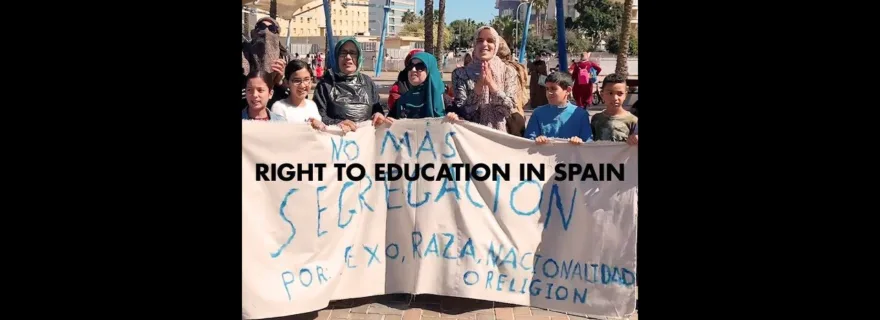Irregular Migrant Children and the Right to Education
For the last two years, the 12 year old Moroccan girl N.S. from Melilla (Spain) had been fighting for her right to education by campaigning, demonstrating and by filing a complaint before the judicial administrative court. What happened after she had taken her complaint to Geneva?
The girl’s mother migrated to Melilla, a Spanish enclave in the North of Africa adjacent to Morocco, when she was a child. She gave birth to N.S., now a 12 year old girl, in Melilla. Mother and daughter are still living in Melilla, although they are both categorized as irregular residents.
Education in Spain is compulsory and free for all children aged between 6 and 16 years. N.S. had reached the age of compulsory schooling, but was not able to enter the public education system because of her irregular migration status.
For two years N.S. had been campaigning and demonstrating every week in front of the Ministry of Education in Melilla. She was not campaigning and demonstrating on her own, but together with other children who were in the same situation.
N.S. and her mother also filed a complaint before the judicial administrative court in Melilla, but the judge ruled that N.S. could not enter the Spanish education system and that N.S. should be educated in Morocco.
According to article 28 of the Convention on the Rights of the Child, State parties need to recognize education as a legal right to every child on the basis of equal opportunity. However, this case shows that for many State Parties there is still a long way to go in achieving full compliance with article 28 CRC.
In February 2020, N.S. and her mother took their complaint to the CRC Committee. The Committee immediately contacted the Spanish government to give it the chance to respond to N.S.’s complaint. One month later, on the 24th of March 2020, the local administration in Melilla informed N.S. that she had been admitted to a public school in Melilla, a prompt decision which was welcomed by the CRC Committee. According to Prof. Ann Skelton, member of the Committee, ‘this is the quickest case to be settled by the individual complaints mechanism’. N.S. replied to the Committee’s timely action through a special video message. According to the girl, she is the only one now to have been admitted, while there are many other children left without school. She would like to see the other children, who are considered irregular residents, to go to school like her.



